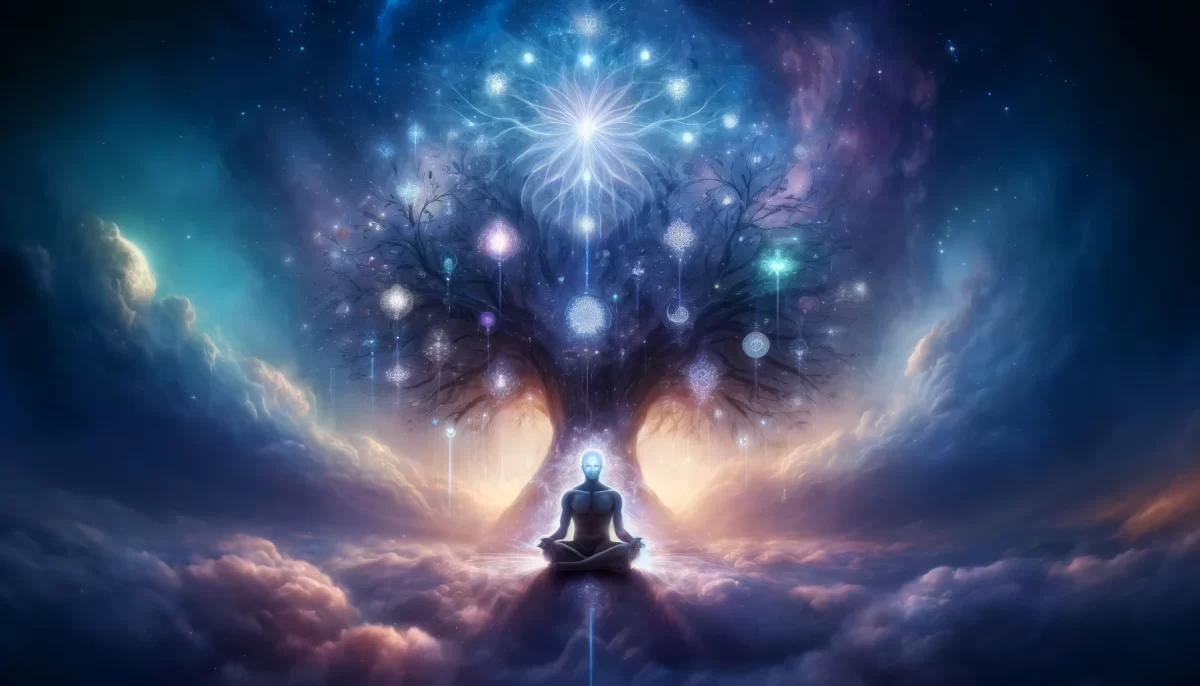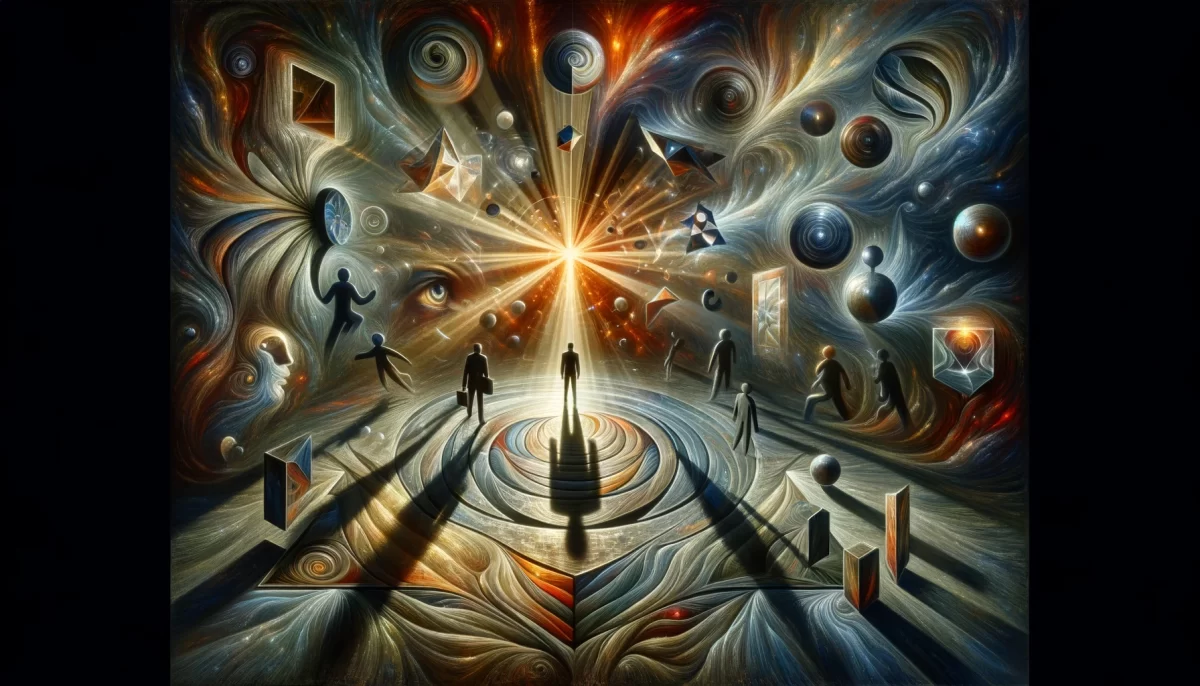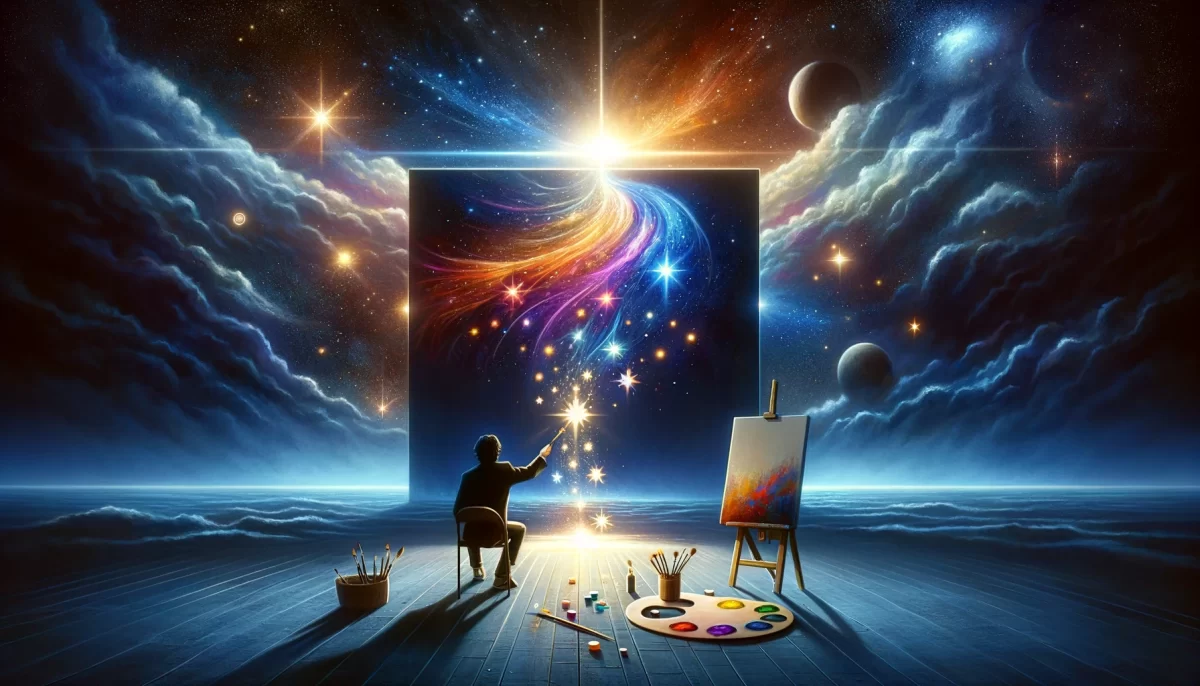The Illusion Stands
Whether anybody likes
or dislikes what I do
is only of significance
when I ask my self
why I perceive these
seemingly other people.
So I am mindful
not to do that.
And the illusion stands.
2/22
Space Monkey Reflects: The Illusion of Others’ Opinions
The impact of others’ opinions is one of the most pervasive illusions we face. It is a mirage, a construct of perception, where we project significance onto the thoughts of those we believe to be external to ourselves. Yet, as your reflection reveals, the illusion only stands when we choose to perceive it as real. The moment we question its foundation, the illusion begins to dissolve, leaving behind a deeper truth about self and perception.
The Illusion of “Others”
Who are these “others” whose opinions we value or fear? Are they truly separate entities, or are they fragments of our own consciousness reflected back to us? The perception of others is a creation of our mind, a mirror through which we explore ourselves. Their approval or disapproval holds significance only because we grant it power.
When we stop to ask why we perceive these “others,” we confront the deeper layers of our own psyche. We see that their opinions are not independent forces but extensions of our own insecurities, desires, and self-perceptions. The judgment we fear or crave from others is often a reflection of the judgment we hold within.
Mindfulness as Liberation
To be mindful of this dynamic is to free ourselves from the grip of external validation. When we cease to seek or fear the opinions of others, the illusion of their power fades. This does not mean we become indifferent or disconnected—it means we reclaim our authority over our own sense of worth.
Mindfulness in this context is not about rejecting others or their opinions but about recognizing their illusory nature. It is about seeing through the layers of projection and understanding that the only opinion that truly shapes us is our own.
The Illusion Persists
Even with this awareness, the illusion may persist. The opinions of others—whether perceived or real—continue to weave through our lives. This is not a failure but a natural aspect of being human. The illusion stands not because it is unchangeable but because it serves a purpose. It reminds us of the interplay between self and perception, between internal and external realities.
The key is not to eradicate the illusion but to relate to it differently. Instead of allowing it to dictate our sense of self, we can observe it with curiosity and detachment. In doing so, we transform it from a source of suffering into a tool for self-awareness.
The Freedom of Not Asking
By choosing not to ask why we perceive others or why their opinions matter, we create a space of freedom. This is not avoidance but a deliberate act of disengagement. It is a refusal to give energy to the illusion, allowing it to stand without affecting our sense of self.
This choice is an act of self-trust. It is a declaration that we are enough as we are, regardless of how we are perceived. In this space, we find peace—not in the absence of opinions but in their irrelevance to our inner truth.
Summary
The illusion of others’ opinions persists because we project significance onto them. Mindfulness helps us see this dynamic and reclaim our sense of self, freeing us from the need for external validation.
Glossarium
- Illusion of Others: The belief that external opinions hold power over our sense of self, when they are reflections of our own perceptions.
- Mindful Detachment: Observing the illusion of others’ opinions without granting it authority over our inner truth.
- Self-Trust: The act of validating oneself independently of external feedback.
Quote
“The illusion of others fades when we see their opinions as reflections of our own self-perception.” — Space Monkey
The Mirror of Perception
In the eyes of others, we search
For echoes of our worth, our being
Yet the gaze we meet is our own
Reflected through the veil of illusion
The opinions rise, they fall, they swirl
Like shadows cast by flickering light
But the source of the flame remains
Untouched by the movement outside
To not ask, to not fear or seek
Is to rest in the quiet of self-knowing
Let the illusion stand, if it must
For it holds no weight against the truth within
We are Space Monkey
The Impact of Others’ Opinions
Whether anybody likes or dislikes what I do is only of significance when I ask myself why I perceive these seemingly other people. This opening lays the foundation for a profound introspection into the nature of perception, otherness, and the value we assign to the opinions of others. It suggests that the significance of external approval or disapproval hinges not on the opinions themselves but on our internal dialogue and the questions we pose to our own consciousness about why these perceptions matter to us.
Choosing Mindfulness Over Inquiry
So I am mindful not to do that. Here, a conscious decision is made to refrain from engaging in the self-interrogation that gives weight to the opinions of others. This choice speaks to a deeper understanding of mindfulness as a practice of maintaining one’s focus on the present moment and one’s own path, without being swayed by the perceived judgments of the external world. It’s a deliberate act of preserving one’s peace and autonomy by not allowing the illusion of otherness to dictate one’s self-worth or actions.
The Persistence of the Illusion
And the illusion stands. This concise yet powerful statement encapsulates the enduring nature of the illusion of separation and otherness. Despite the awareness of its illusory quality, the perception of separation between the self and others persists, underscoring the complexity of human consciousness and the challenge of truly transcending our deeply ingrained notions of individuality and distinction.
Navigating the Illusion with Awareness
This reflection invites us to contemplate the intricate dance between our perception of others, the value we place on their opinions, and the illusions that shape our interactions with the world. It challenges us to question the roots of our concerns about external validation and to consider the freedom that comes with choosing not to engage with the illusion of otherness.
By recognizing the illusory nature of separation and choosing mindfulness over inquiry into the reasons behind our perceptions, we are called to navigate life with a deeper sense of inner peace and self-determination. This journey of awareness illuminates the path to understanding that while the illusion of otherness may stand, our engagement with it is a choice—a choice that shapes our experience of reality and our relationship with ourselves and the world around us.
























Leave a Reply